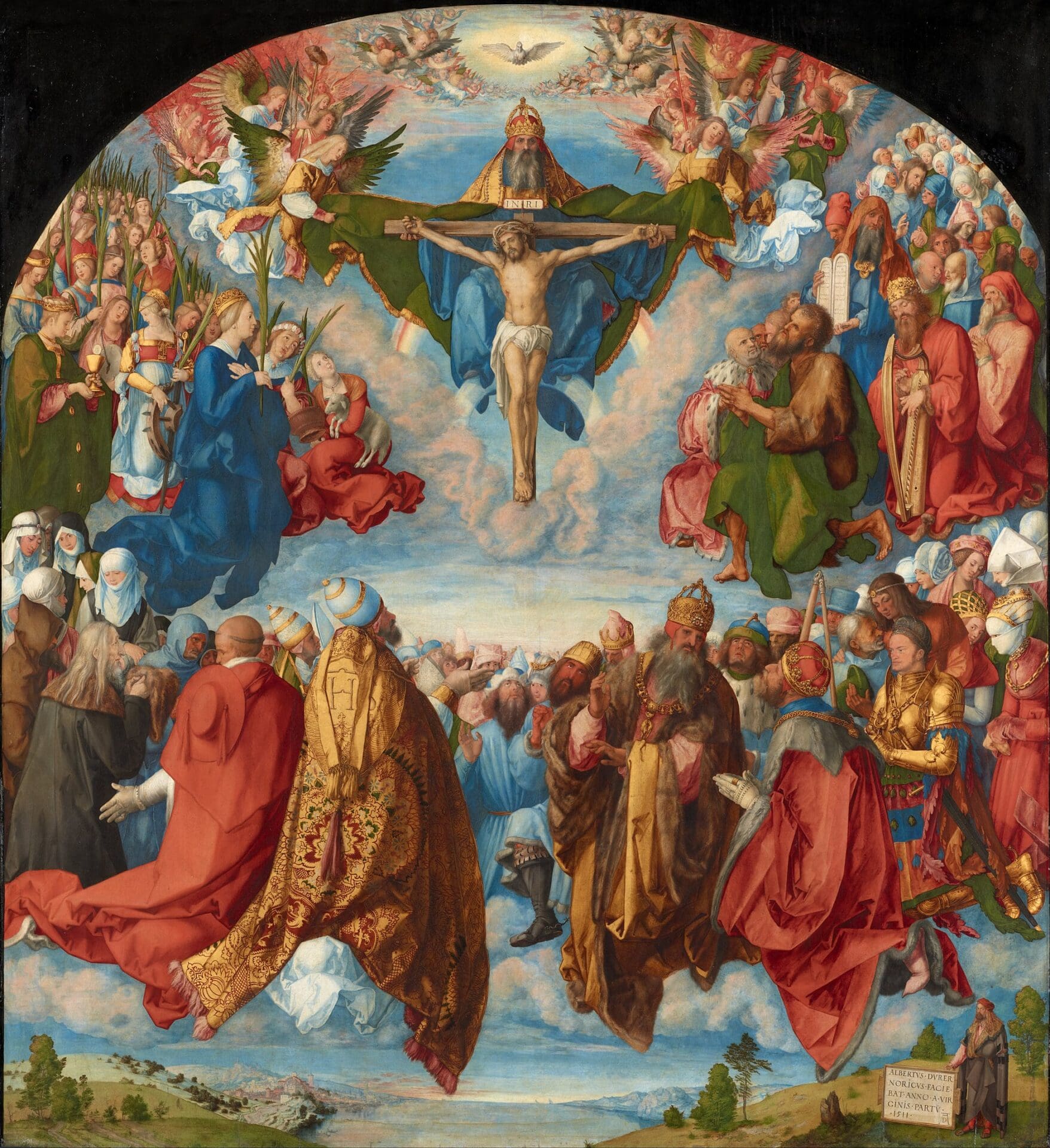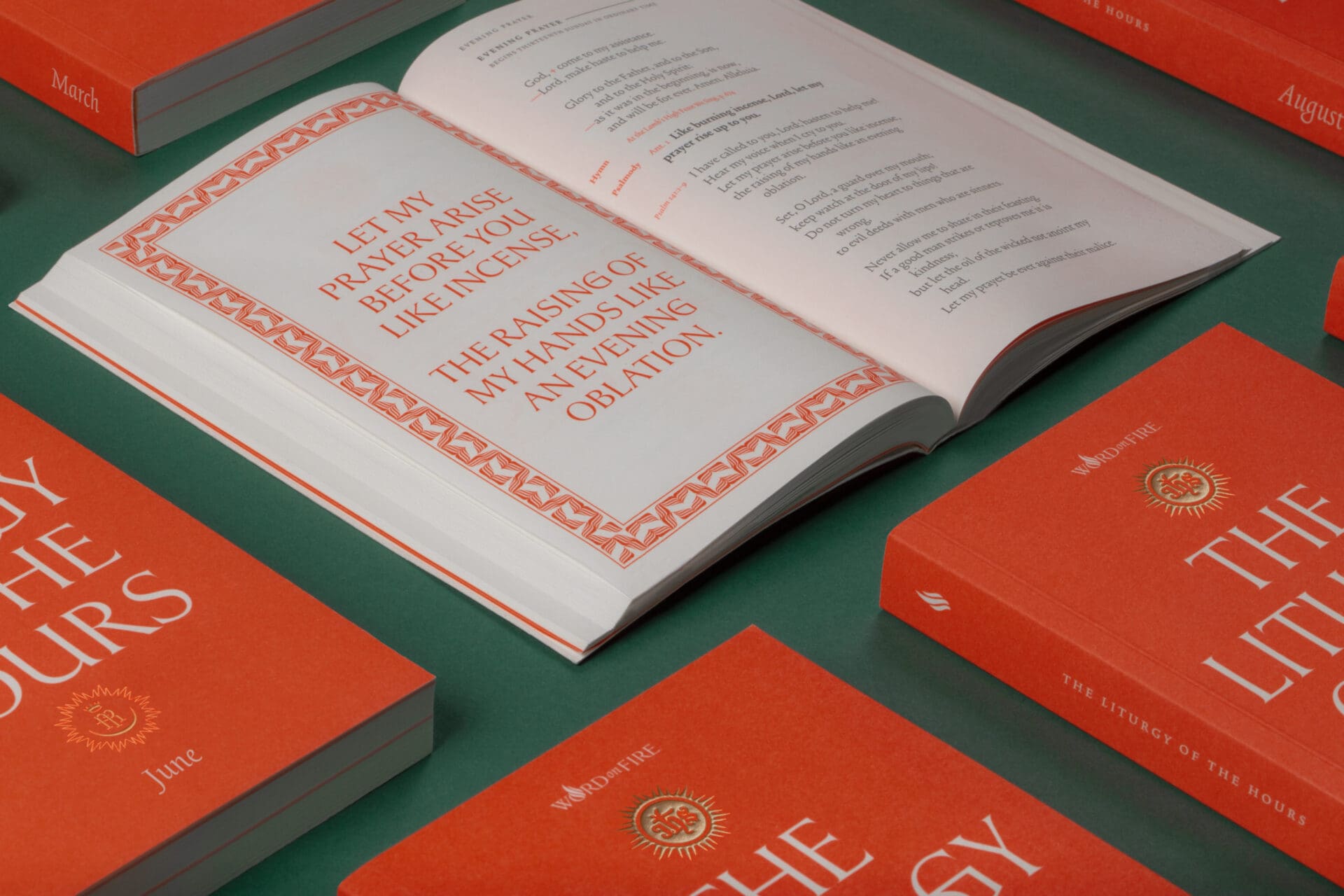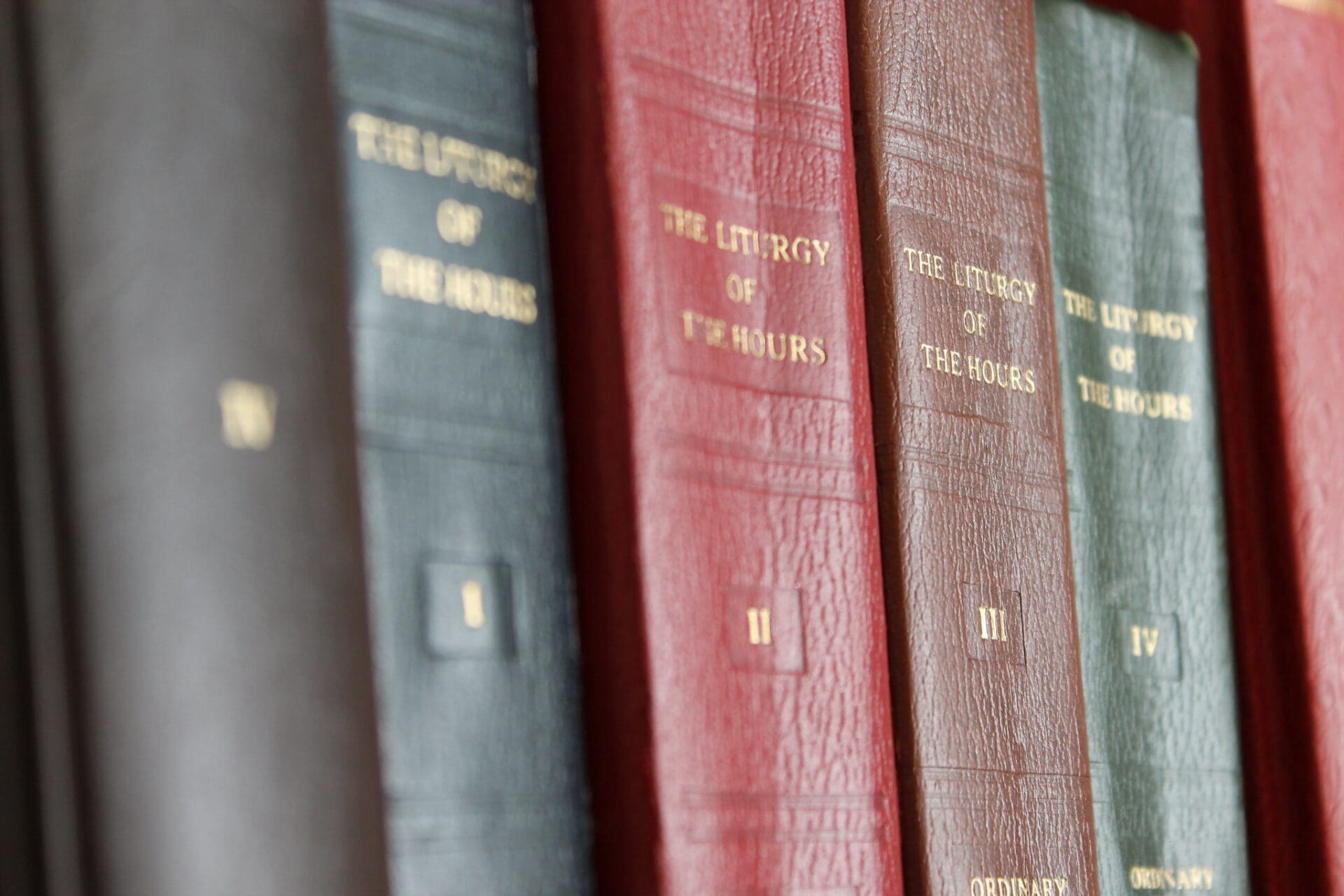This article begins a series dedicated to an exploration of two often overlooked parts of the Roman Missal: the Masses for Various Need and Occasions and Votive Masses. This series will offer suggestions on how these texts can be integrated into the liturgical life of a parish in order to foster the devotion of the faithful and to bring a spiritual dimension to the full range of temporal realities the faithful encounter in daily life. In this way, the full, actual, and conscious participation of those present at Mass can be fostered since the words they hear prayed will reflect more closely the realities they live.
The Masses for various needs and occasions can offer a wealth of opportunities to bridge this gap between one’s faith life and one’s daily life. When used judiciously, this collection of orations can make the prayer of the Church resonate in harmony with the needs and hopes of those gathered around the altar. The words of these prayers can help those present recognize that the Gospel does in fact have something to say about what they experience. It may help them recognize that God is not distant, but wishes to be close to what is in their hearts each day. This series will explore how the prayers found in this section of the Roman Missal can be used wisely for this purpose.
A History Told in Weekdays
Whenever we come to Mass on Sundays, we know that the three collects the priest celebrant will pray that day are unique to the occasion. By “collects” I mean what we colloquially call the opening prayer, the prayer over the gifts, and the prayer after communion. Each of these is specific to the given Sunday and they are used as a set on appointed Sundays throughout the year. Indeed, the current Roman Missal (2002) also has a specific set of three collects for each of the weekdays of Advent, Christmas, Lent, and Easter as well. The most important days of the liturgical year, such as Christmas, Ascension, All Saints, and Assumption, also have sets of three collects which are specific to these feasts. In the history of the evolution of the Roman Missal, this was not always the case. Certainly, the sets of prayers to be used on Sundays and important feasts were the first to be codified. But even until 1969, the missal did not contain specific prayers for the weekdays of Advent, Christmas, or Easter for example. The prayers of the previous Sunday were simply repeated throughout the week. This is still the case for the weekdays of Ordinary Time even now.
Early on in the history of the development of the Roman Missal, there arose the desire for prayers which were specific to the occasion being celebrated during the course of the week. For example, we know that Mass prayers for the celebration of funerals and weddings began to be standardized first. The earliest known ancestor to today’s missal, the so-called Leonine Sacramentary or Verona Sacramentary, dating from the middle of the sixth century, already included Mass prayers for these two important occasions. Eventually, additional prayers for events like baptisms, religious professions, and ordinations were added to the collections of Mass prayers found in medieval manuscripts. Today, the Roman Missal has an entire section of prayers for ritual Masses where a sacrament or a sacramental is celebrated.
The gradual, unconscious separation of the spiritual life from temporal life is a constant temptation for believers in a secularized society. Unfortunately, the Church can even foster this separation when its public prayer rarely refers to the actual realities faced by those present.
As early as the middle of the eighth century in a manuscript called the Gelasian sacramentary (Vat. Reg. 316), we see sets of prayers composed for specific spiritual and temporal needs such as the salvation of the living, for birthdays, and for a barren woman. Eventually prayers for a wide range of intentions, such as prayers for rain, for the release of captives, or for the healing of the sick, were grouped together toward the end of missals in a section called orationes diversae. This multiplication of Mass texts for all kinds of intentions coincided with the new custom of the daily celebration of Mass by monks who were priests. Individuals would approach a monk and ask him to offer Mass for a specific need they had, whether for good crops, the forgiveness of their sins, etc. During the Carolingian period (800-1000 A.D.), many new sets of Mass prayers expressed the intention for which the priest had promised to pray at Mass. Today, the Roman Missal (2002) includes a large number of sets of prayers for various needs and occasions—49 sets in fact. Twenty of these correspond to some need in the Church such as the unity of Christians or vocations to holy orders. Seventeen address pressing circumstances which communities face, such as exile, war, or famine. Twelve sets of formularies are devoted to needs which individuals face, such as sickness, imprisonment, or approaching death.
In addition, the Carolingian period was a time of great confidence in the intercessory role of the saints in the economy of salvation. Often, the celebration of Mass was requested to honor a particular saint as an act of thanksgiving after obtaining a favor through the power of that saint’s intercession. At Mass, the priest celebrant himself could intercede before God for a specific intention which was proposed to him. But the priest could also ask a saint to likewise intercede before God for the same intention. Therefore, votive Masses in honor of various saints were also offered in order to obtain specific blessings. This led to the development of many sets of Mass prayers and readings dedicated to the saints to thank them for favors obtained and to request their intercession in time of need.
Over time, the use of these votive Masses in honor of the saints became disengaged from any specific need. On a weekday when there was no special celebration of great importance, a priest might offer Mass in honor of St. Joseph or of the angels as an expression of his own personal devotion for example. Otherwise, the Mass prayers and readings from the previous Sunday were simply repeated every day of the following week. Eventually this system of votive Mass became highly structured. Unless a feast day intervened, the Roman Missal of 1570 provided that on Monday the priest could offer Mass in honor of the Trinity, on Tuesday Mass in honor of the angels, on Wednesday Mass in honor of St. Joseph or Sts. Peter and Paul or all the apostles, on Thursday Mass in honor of the Holy Spirit or the Holy Eucharist or Christ the High Priest, on Friday Mass in honor of the Holy Cross or the Passion of the Lord, and on Saturday Mass in honor of the Blessed Virgin Mary. Over time, additional votive Masses were added to the missal, such as the Sacred Heart of Jesus, or more recently in 2002, in honor of the Mercy of God. The votive Masses in honor of one of the persons of the Trinity, the Blessed Virgin Mary, or one of the Apostles found in today’s missal are no longer assigned to specific days of the week, but are available for use whenever the occasion warrants it.
The Church Takes a Holiday…
When faced with the many choices which the Roman Missal (2002) already provides, celebrants and liturgy committees can wonder why more choices taken from the Masses for various needs and occasions are needed. As we know, the optional memorials of saints can be observed or not. Prayers taken from the commons of the saints can supplement those in the sanctoral cycle for a given saint. Any of the Sunday collects can be used on a weekday, not simply the prayers from the previous Sunday. Beautiful prayers exist for Masses for the dead and for the celebration of the sacraments, with ample choice left to the celebrant as to which prayers can best serve the spiritual needs of those present.
But there are many other times when the current sets of prayers in the temporal cycle or the sanctoral cycle do not correspond well with the occasion. Often these are days of civic importance or personal significance. These days can have great meaning for believers, and yet that meaning is rarely expressed by the wording of the usual ferial day’s prayers. Recognizing this lack, the bishops of the United States, for example, provided Mass texts for Independence Day and Thanksgiving Day in order to better express the importance these days hold for believers in the U.S. Mass texts drawn from the Masses from various needs and occasions can function in much the same way on other days of civic or personal importance.
For example, on Election Day (first Tuesday of November in the United States), would it not help to connect the life of faith with one’s civic duties to hear: “O God, who arrange all things according to a wonderful design, graciously receive the prayers we pour out to you for our country, that, through the wisdom of its leaders and the integrity of its citizens, harmony and justice may be assured and lasting prosperity come with peace” (For the Nation or State, no. 21). Or in a farming community at springtime, would it not convince those present that the life of faith is not isolated from their daily concerns were they to hear: “O God, by whose help we sow seeds in the earth that will grow by the effect of your power, grant that what we know to be lacking in our labors may be supplied abundantly by you, for you alone give increase” (At Seedtime, no. 27). Or on the first day of school, doesn’t it make sense to pray: “O God, who are without beginning or end, the source of all creation, grant us so to live this new year, whose beginning we dedicate to you, that we may abound in good things and be resplendent with works of holiness” (At the Beginning of the Civil Year, no. 25). On any of these occasions, it might be easier to simply fall back on the Mass prayers from the previous Sunday. But that choice becomes a missed opportunity to draw connection between the Church’s public prayer and the daily lived reality of parishioners.
The gradual, unconscious separation of the spiritual life from temporal life is a constant temptation for believers in a secularized society. Unfortunately, the Church can even foster this separation when its public prayer rarely refers to the actual realities faced by those present for the Eucharist. Believers come to church week after week on Sunday and may hear very little about how they live outside of church during the week. They can go away thinking that the faith has little to do with life. That is why it is so important for preaching to be timely and relevant as well as spiritual and challenging. The prayers of the faithful should reflect real needs in a local community, not simply generic, abstract concerns which fail to stir hearts to turn to God. When none of the prayers of the Mass, the collects, the prefaces, and the Eucharistic prayers for example, refer to what at those present consider important in their lives, the disconnect between faith and life widens.
Editor’s note: look for Msgr. Caron’s future entries on Masses for Various Needs and Occasions and Votive Masses in our monthly electronic newsletter, AB Insight, and on our website, www.adoremus.org.
Msgr. Marc B. Caron, S.T.D., is the vicar general and the moderator of the curia for the Diocese of Portland, ME. He has served as a pastor, as the director of the diocesan Office for Worship, and as a chancellor of the diocese. Most recently, he was a member of the faculty of St. John’s Seminary, Brighton, MA, where he was also director of liturgy. In 2021, he received the doctoral degree from the University of St. Mary of the Lake/Mundelein Seminary, writing on the sacramental nature of the diaconate. He is the author of a number of articles which have appeared in The Jurist, Worship, Catechumenate, and Homiletic and Pastoral Review.
Image Source: AB/Wikipedia. The Adoration of the Trinity, by Albrecht Dürer (1511).


